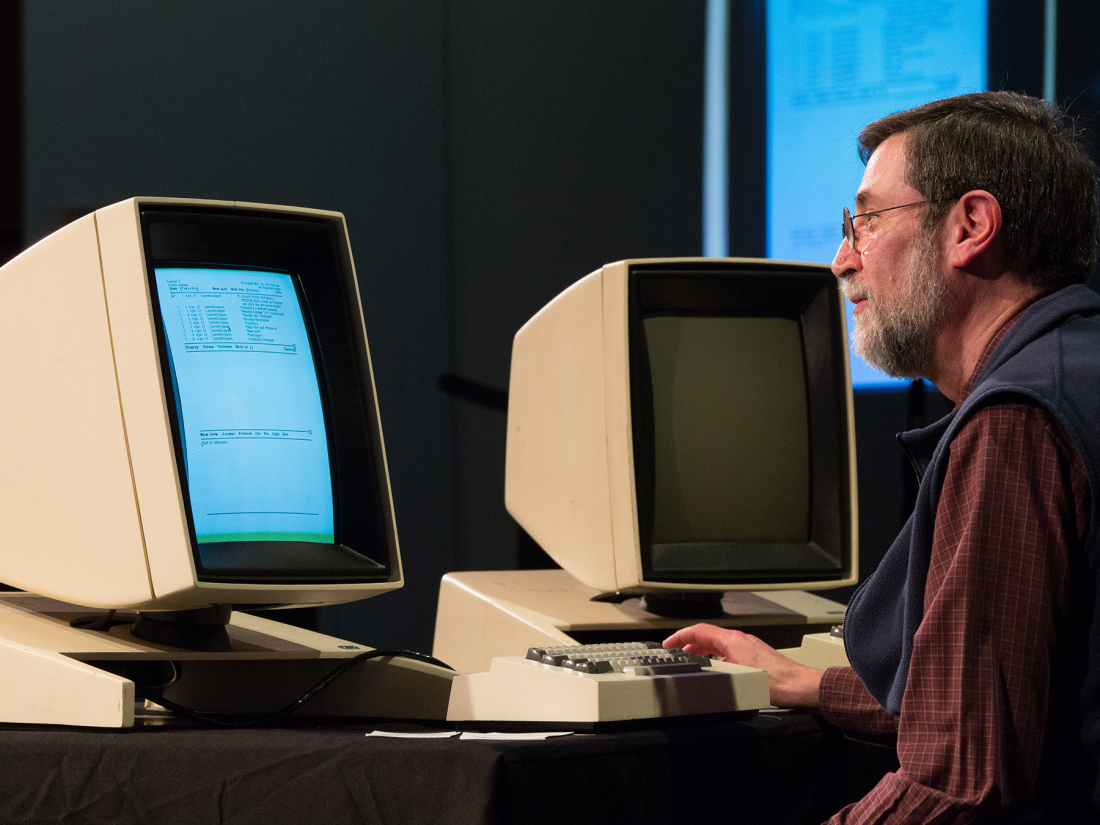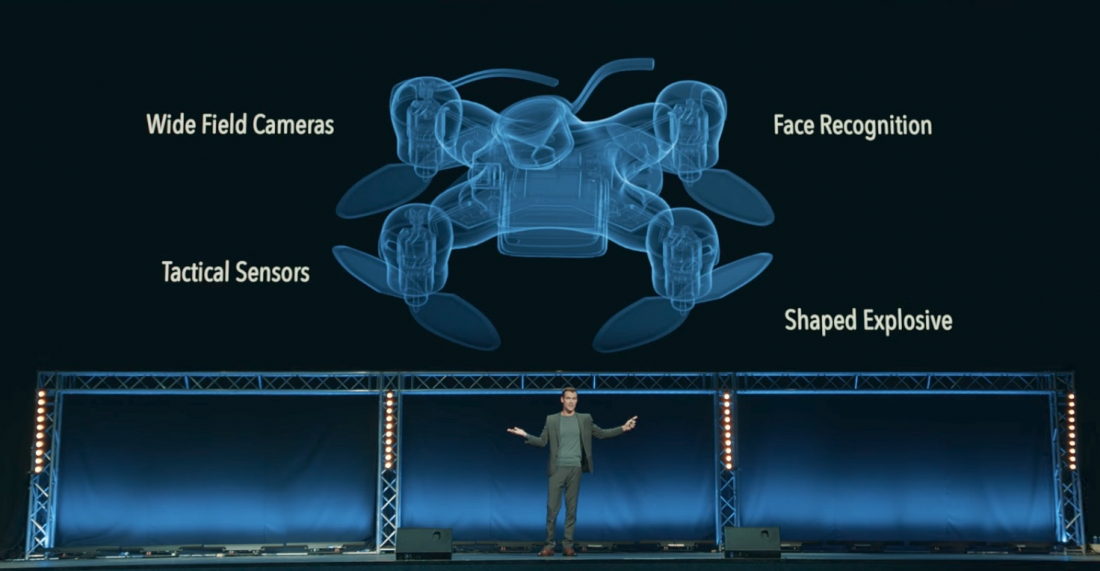Lethal microdrones, dystopian futures, and the autonomous weapons debate This week, the first meeting of the Convention on Conventional Weapons (CCW) Group of Governmental Experts on lethal autonomous weapons systems is taking place at the United Nations in Geneva. Organizations like the Campaign to Stop Killer Robots are encouraging the UN to move forward on international regulation of autonomous weapons, which is great, because talking about how these issues will shape the future of robotics and society is a very important thing. IEEE Spectrum
GE is breaking up with the light bulb, its most iconic accomplishment General Electric is getting rid of the light bulb, the most iconic product of GE's 125-year existence. Unveiling GE's roadmap, new CEO John Flannery said that the company would focus on its health, power and aviation businesses. Lighting didn't make the cut to be part of GE's future. The news itself isn't a shock: The company said in July that it was looking to sell its lighting business. CNN
A challenger appears: Specs for Samsung's potential Optane killer Analysis How does Korean flash and DRAM chipper Samsung's Z-NAND compare to Intel and Micron's 3D XPoint? Z-NAND is Samsung's tweaked flash technology, thought to be SLC (1 bit/cell) with a customised controller to speed it up. Optane is rushing Z-NAND to market adoption and it's a wide-open race. The Register
Tim Berners-Lee on the future of the web: 'The system is failing' Sir Tim Berners-Lee's optimism about the future of the web is starting to wane in the face of a "nasty storm" of issues including the rollback of net neutrality protections, the proliferation of fake news, propaganda and the web's increasing polarisation. The inventor of the world wide web always maintained his creation was a reflection of humanity - the good, the bad and the ugly. The Guardian
The Xerox Alto struts its stuff on its 40th birthday The Xerox Alto, widely recognized as the first modern personal computer, pioneered just about every basic concept we are familiar with in computers today. These include windows, bit-mapped computer displays, the whole idea of WYSIWIG interfaces, the cut/paste/copy tools in word processing programs, and pop-up menus. IEEE Spectrum

Amazon's last mile Who delivers Amazon orders? Increasingly, it's plainclothes contractors with few labor protections, driving their own cars, competing for shifts on the company's own Uber-like platform. Though it's deployed in dozens of cities and associated with one of the world's biggest companies, government agencies and customers alike are nearly oblivious to the program's existence. Gizmodo
Dark cloud: Inside the Pentagon's leaked internet surveillance archive The UpGuard Cyber Risk Team can now disclose that three publicly downloadable cloud-based storage servers exposed a massive amount of data collected in apparent Department of Defense intelligence-gathering operations. The repositories appear to contain billions of public internet posts and news commentary scraped from the writings of many individuals from a broad array of countries... Upguard
Everything you need to know about China's ambitious space plans From building its own space station, to capturing an asteroid and putting it in orbit around the Moon, China's space programme is often depicted as ludicrous and unfeasible. But it would be foolish to overlook its potential. China is quickly becoming one of the most ambitious and pioneering nations when it comes to exploring space. Wired
A global collaboration to create "artificial organisms" just went live Mindfire, a new foundation with the goal of "decoding the mind" to help develop true artificial intelligence (AI) is launching November 17th in Zurich, Switzerland. Futurism spoke with the founder of Starmind and president of the foundation, Pascal Kaufmann to learn more about its goals and the path to reach them. Futurism
Variation spreads at 10/7nm Variation between different manufacturing equipment is becoming increasingly troublesome as chipmakers push to 10/7nm and beyond. Process variation is a well-known phenomenon at advanced nodes. But some of that is actually due to variations in equipment---sometimes the exact same model from the same vendor. Semiconductor Engineering
Engineers create stable plasma ring in open air For the first time, engineers at Caltech have created a stable ring of plasma in open air---essentially capturing lightning in a bottle, but without the bottle. Matter can exist in four distinct phases: solid, liquid, gas, and plasma. Plasmas are made of charged particles---ions and electrons---and occur naturally on Earth as lightning, in the weather phenomenon called St. Elmo's fire (in which glowing balls of light sometimes appear on pointed objects during storms), and in man-made objects such as fluorescent light bulbs and plasma cutting torches. Caltech (also, Scientists discover how to turn light into matter after 80-year quest)
Richard Stallman the vanishing state of privacy The digital revolution has enriched our lives in so many ways, giving us access to information and capabilities our ancestors only dream of. But that has come at a price: surveillance. Companies that provide us with the services we use know an incredible amount about us, from what we're reading and where we go, to who we vote for and what our hobbies are. Factor
AP Exclusive: US scientists try 1st gene editing in the body Scientists for the first time have tried editing a gene inside the body in a bold attempt to permanently change a person's DNA to cure a disease. The experiment was done Monday in California on 44-year-old Brian Madeux. Through an IV, he received billions of copies of a corrective gene and a genetic tool to cut his DNA in a precise spot. AP
The complete moral bankruptcy of manipulating human psychology to turn users into addicts I'm sorry, Nir. Given that some (all?) of your income comes from teaching software makers how to leverage BJ Fogg's discoveries on behavioral psychology for fun and profit, you must surely be one of the least qualified people to define the moral guidelines around the subject of digital psychological manipulation. Hacker Noon
